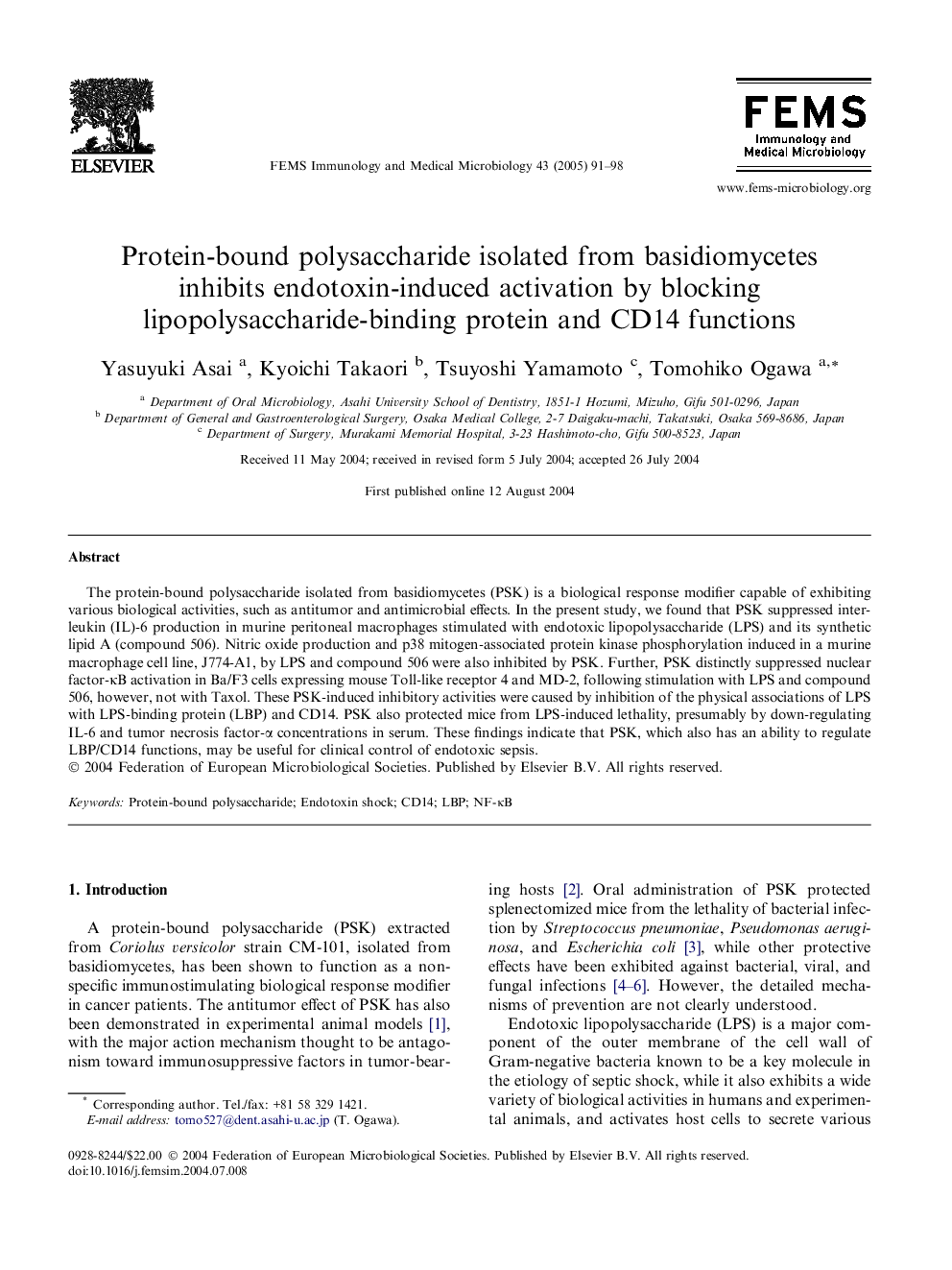| Article ID | Journal | Published Year | Pages | File Type |
|---|---|---|---|---|
| 9278117 | FEMS Immunology and Medical Microbiology | 2005 | 8 Pages |
Abstract
The protein-bound polysaccharide isolated from basidiomycetes (PSK) is a biological response modifier capable of exhibiting various biological activities, such as antitumor and antimicrobial effects. In the present study, we found that PSK suppressed interleukin (IL)-6 production in murine peritoneal macrophages stimulated with endotoxic lipopolysaccharide (LPS) and its synthetic lipid A (compound 506). Nitric oxide production and p38 mitogen-associated protein kinase phosphorylation induced in a murine macrophage cell line, J774-A1, by LPS and compound 506 were also inhibited by PSK. Further, PSK distinctly suppressed nuclear factor-κB activation in Ba/F3 cells expressing mouse Toll-like receptor 4 and MD-2, following stimulation with LPS and compound 506, however, not with Taxol. These PSK-induced inhibitory activities were caused by inhibition of the physical associations of LPS with LPS-binding protein (LBP) and CD14. PSK also protected mice from LPS-induced lethality, presumably by down-regulating IL-6 and tumor necrosis factor-α concentrations in serum. These findings indicate that PSK, which also has an ability to regulate LBP/CD14 functions, may be useful for clinical control of endotoxic sepsis.
Related Topics
Life Sciences
Immunology and Microbiology
Immunology
Authors
Yasuyuki Asai, Kyoichi Takaori, Tsuyoshi Yamamoto, Tomohiko Ogawa,
